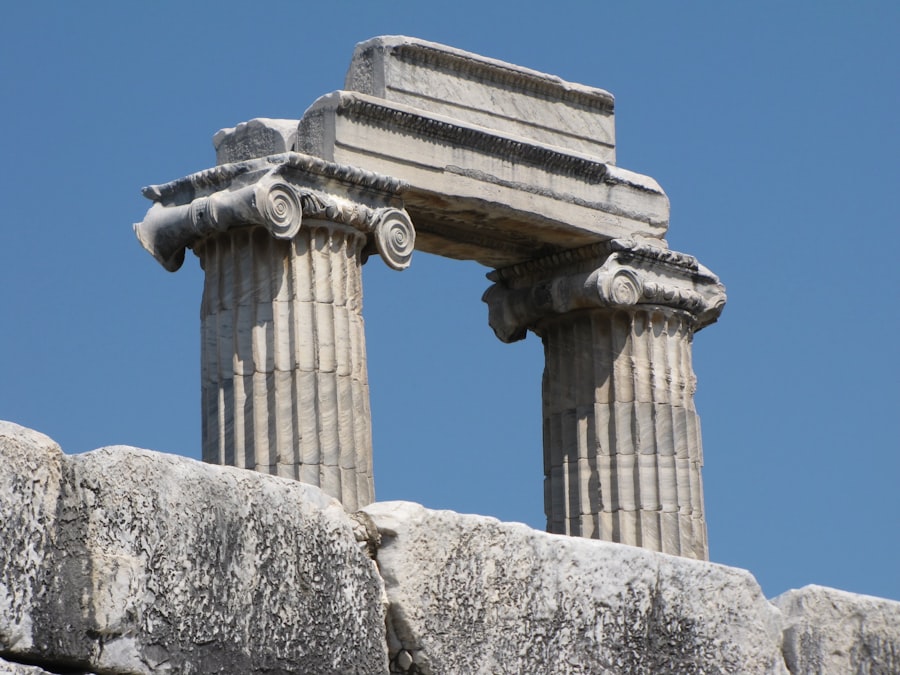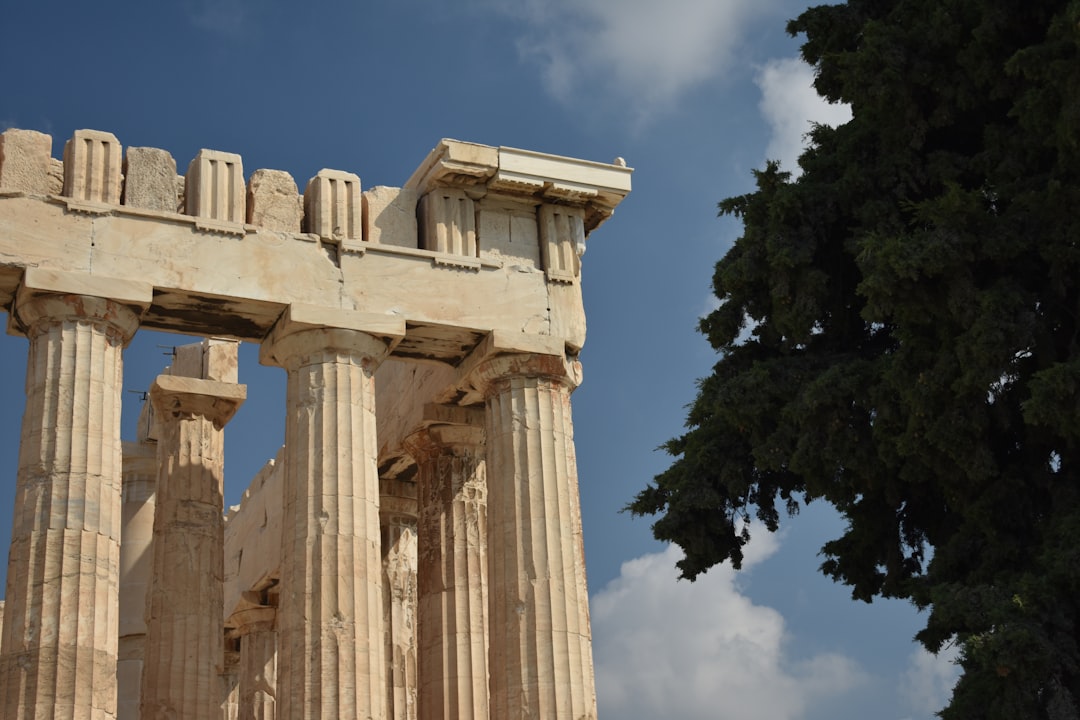Ancient Greece stands as a monumental pillar in the history of human civilization, particularly in the realms of science and engineering. This era, spanning from approximately the 8th century BCE to the 6th century CE, was marked by a profound curiosity about the natural world and a relentless pursuit of knowledge. The Greeks were not merely passive observers of their environment; they actively sought to understand the principles governing the universe.
This intellectual fervor laid the groundwork for many scientific disciplines that continue to influence contemporary thought and practice. The Greeks made significant strides in various fields, including mathematics, astronomy, medicine, and engineering. Their methodologies often combined empirical observation with philosophical inquiry, leading to groundbreaking theories and inventions.
The legacy of ancient Greek science and engineering is not only evident in historical texts but also in the very fabric of modern scientific inquiry and technological advancement. As one delves deeper into this fascinating period, it becomes clear that the contributions of ancient Greek thinkers have shaped the trajectory of human knowledge in ways that are still felt today. Here is the link to the Antikythera Mechanism documentary: Antikythera Mechanism documentary.
Key Takeaways
- Ancient Greek science and engineering laid the foundation for many modern technological advancements and innovations.
- The influence of ancient Greek philosophy on science and engineering is evident in the emphasis on observation, reasoning, and logical thinking.
- Ancient Greek mathematicians and astronomers made significant contributions to the fields of mathematics and astronomy, including the development of the concept of the scientific method.
- The legacy of ancient Greek medicine and healthcare is seen in the Hippocratic Oath and the emphasis on treating the whole patient, not just the symptoms.
- Ancient Greek contributions to architecture and urban planning are evident in the design of cities and buildings that still influence modern architecture.
The Influence of Ancient Greek Philosophy on Science and Engineering
The philosophical underpinnings of ancient Greece played a crucial role in shaping its scientific and engineering achievements. Thinkers such as Socrates, Plato, and Aristotle laid the groundwork for rational thought and empirical investigation. Their inquiries into the nature of existence, knowledge, and ethics encouraged a systematic approach to understanding the world.
For instance, Aristotle’s emphasis on observation and classification provided a framework that would later influence the scientific method. Moreover, the interplay between philosophy and science fostered an environment where questioning and critical thinking were paramount. The Greeks believed that knowledge could be attained through reasoned discourse and logical deduction.
This philosophical approach not only advanced scientific thought but also inspired engineers to apply mathematical principles to solve practical problems. The synthesis of philosophy and science in ancient Greece created a rich intellectual tradition that would resonate through the ages.
The Achievements of Ancient Greek Mathematicians and Astronomers

The contributions of ancient Greek mathematicians and astronomers are nothing short of extraordinary. Figures such as Euclid, Pythagoras, and Archimedes made foundational advancements that would shape mathematics for centuries to come. Euclid’s “Elements” is often regarded as one of the most influential works in mathematics, systematically presenting geometric principles that are still taught today.
His logical approach to geometry established a standard for mathematical proofs that remains relevant. In the realm of astronomy, figures like Hipparchus and Ptolemy revolutionized the understanding of celestial bodies. Hipparchus is credited with creating one of the first star catalogs and developing a system for predicting eclipses.
Ptolemy’s geocentric model of the universe dominated astronomical thought for over a millennium. These achievements not only advanced scientific knowledge but also laid the groundwork for future explorations in both mathematics and astronomy, influencing scholars during the Renaissance and beyond.
The Legacy of Ancient Greek Medicine and Healthcare
| Aspect | Details |
|---|---|
| Foundations of Medicine | Ancient Greeks laid the groundwork for modern medicine with their emphasis on observation, logic, and natural causes of illness. |
| Hippocratic Oath | The ethical code for physicians, attributed to the ancient Greek physician Hippocrates, emphasizing the moral obligations and proper conduct of doctors. |
| Medical Treatments | Ancient Greeks used a variety of treatments including herbal remedies, dietary regulations, and physical therapies to treat illnesses. |
| Healthcare Facilities | Ancient Greeks established the first hospitals, known as Asclepions, where patients could receive medical care and healing treatments. |
| Medical Knowledge | Ancient Greek physicians made significant contributions to the understanding of anatomy, physiology, and disease, which continue to influence medical practice today. |
Ancient Greek medicine represents a significant chapter in the history of healthcare, characterized by a shift from supernatural explanations of illness to more rational, observational approaches. Hippocrates, often referred to as the “Father of Medicine,” emphasized the importance of clinical observation and ethical practice. His teachings laid the foundation for medical ethics, encapsulated in the Hippocratic Oath, which continues to guide medical professionals today.
The Greeks also made notable advancements in understanding human anatomy and physiology. They conducted dissections and observations that contributed to a more accurate understanding of the human body. Galen, another prominent figure in ancient medicine, expanded upon Hippocratic principles and made significant contributions to anatomy and pharmacology.
Ancient Greek Contributions to Architecture and Urban Planning
The architectural achievements of ancient Greece are celebrated for their beauty, innovation, and functionality. Structures such as the Parthenon exemplify the Greeks’ mastery of design and engineering principles. Utilizing columns, symmetry, and proportion, Greek architects created buildings that not only served religious purposes but also reflected cultural values and civic pride.
The use of marble and intricate sculptures further enhanced the aesthetic appeal of these structures. In addition to monumental architecture, ancient Greeks made significant contributions to urban planning. Cities like Athens were designed with careful consideration for public spaces, including agoras (marketplaces) and theaters.
The layout of these cities facilitated social interaction and civic engagement, reflecting democratic ideals. The principles of Greek architecture and urban planning continue to influence contemporary design, emphasizing harmony between form and function.
The Impact of Ancient Greek Engineering on Modern Technology

The engineering feats achieved by ancient Greeks laid a foundation for modern technology that is often overlooked. Innovations such as the Archimedean screw for raising water, catapults for warfare, and advanced construction techniques showcased their ingenuity. Archimedes’ work on levers and pulleys demonstrated an understanding of mechanical advantage that would inform engineering practices for centuries.
Moreover, ancient Greek engineers applied mathematical principles to solve practical problems in construction and transportation. The use of geometry in designing structures ensured stability and durability, while advancements in hydraulics improved water management systems. These engineering principles have been adapted and refined over time, influencing modern engineering practices across various fields.
The Role of Ancient Greek Science in Shaping Western Civilization
The scientific advancements made by ancient Greeks played a pivotal role in shaping Western civilization. Their emphasis on rational thought, empirical observation, and systematic inquiry laid the groundwork for the scientific revolution that would emerge in Europe during the Renaissance. The revival of classical texts during this period reignited interest in Greek philosophy and science, leading to significant advancements in various disciplines.
Furthermore, the integration of Greek scientific thought into educational curricula established a tradition of inquiry that persists today. Universities across Europe adopted Greek texts as foundational materials for teaching philosophy, mathematics, and natural sciences. This intellectual heritage has profoundly influenced Western thought, fostering a culture that values critical thinking and empirical investigation.
Ancient Greek Innovations in Water Management and Irrigation
Water management was a critical concern for ancient Greek societies, particularly given their reliance on agriculture for sustenance. The Greeks developed innovative irrigation techniques that maximized agricultural productivity while conserving water resources. They constructed aqueducts to transport water from distant sources to urban centers, demonstrating advanced engineering skills.
Additionally, they implemented systems for rainwater harvesting and drainage to manage seasonal fluctuations in water availability. These innovations not only supported agricultural practices but also contributed to public health by ensuring access to clean water. The principles behind these ancient water management systems continue to inform modern practices in sustainable agriculture and urban planning.
The Legacy of Ancient Greek Military Technology and Strategy
The military innovations of ancient Greece had a lasting impact on warfare strategies throughout history.
This strategic approach allowed smaller city-states to effectively confront larger armies.
Moreover, advancements in siege technology, including catapults and battering rams, showcased their engineering prowess in military applications. The Greeks’ emphasis on strategy over brute force influenced military thinkers for generations, shaping tactics used in subsequent conflicts across different cultures. The legacy of ancient Greek military technology continues to be studied in military academies around the world.
The Cultural and Artistic Influence of Ancient Greek Science and Engineering
The intersection of science, engineering, and art in ancient Greece produced a rich cultural tapestry that continues to inspire contemporary artists and thinkers. The Greeks believed that beauty was an essential aspect of both art and science; thus, their architectural designs often reflected mathematical precision alongside aesthetic appeal. This harmonious blend is evident in structures like temples and theaters that served both functional and artistic purposes.
Furthermore, ancient Greek contributions to sculpture and painting were deeply intertwined with their understanding of human anatomy and proportion. Artists like Phidias employed mathematical principles to create lifelike representations that captured both physical beauty and emotional depth. This cultural legacy has profoundly influenced Western art movements throughout history, emphasizing the importance of integrating scientific understanding with artistic expression.
The Enduring Importance of Ancient Greek Science and Engineering in the Modern World
The enduring importance of ancient Greek science and engineering is evident in various aspects of modern life. Their methodologies continue to inform contemporary scientific practices, emphasizing observation, experimentation, and critical analysis as cornerstones of inquiry. The principles established by ancient Greek thinkers remain foundational in fields ranging from mathematics to medicine.
Moreover, many modern technologies can trace their roots back to ancient Greek innovations. From architectural designs that prioritize sustainability to engineering solutions addressing contemporary challenges, the influence of ancient Greece is pervasive. As society grapples with complex issues such as climate change and public health crises, revisiting the wisdom of ancient Greek science may provide valuable insights into sustainable practices for future generations.
In conclusion, ancient Greece’s contributions to science and engineering have left an indelible mark on human civilization. Their achievements continue to resonate across disciplines, shaping modern thought while inspiring future innovations. As we navigate an increasingly complex world, acknowledging the legacy of ancient Greek science can foster a deeper appreciation for the interconnectedness of knowledge across time.
Ancient Greek science and engineering laid the groundwork for many modern disciplines, showcasing remarkable advancements in mathematics, astronomy, and architecture. For a deeper exploration of these contributions, you can read the article on ancient Greek innovations in science and engineering at this link. This article delves into the achievements of notable figures such as Archimedes and Pythagoras, highlighting their enduring impact on contemporary thought and technology.
WATCH THIS! The Antikythera Mechanism Is Not Human Tech
FAQs
What were the major contributions of ancient Greek science and engineering?
Ancient Greek science and engineering made significant contributions in various fields such as mathematics, astronomy, physics, and engineering. They developed the foundations of geometry, made important discoveries in medicine, and built impressive architectural structures.
Who were some of the most notable ancient Greek scientists and engineers?
Some of the most notable ancient Greek scientists and engineers include Archimedes, known for his contributions to mathematics and engineering; Hippocrates, often referred to as the “father of medicine”; and Pythagoras, famous for his theorem in geometry.
What were some of the key advancements in ancient Greek engineering?
Ancient Greek engineers made significant advancements in various areas such as architecture, construction, and military technology. They developed innovative building techniques, such as the use of columns and arches, and created advanced war machines like the catapult.
How did ancient Greek science and engineering influence modern knowledge and technology?
The contributions of ancient Greek science and engineering laid the groundwork for many modern scientific and technological advancements. Their discoveries and innovations in fields such as mathematics, astronomy, and medicine have had a lasting impact on the development of modern knowledge and technology.
